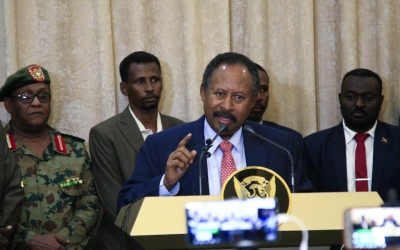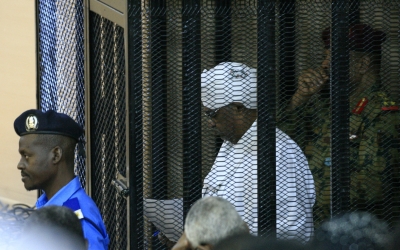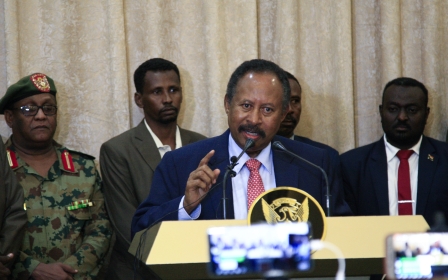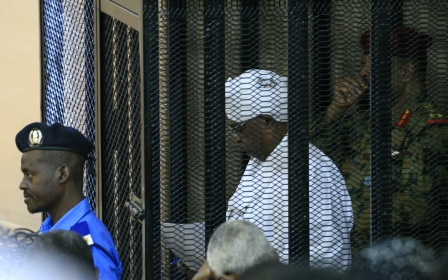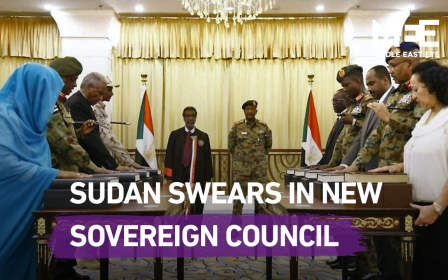Sudan needs $10bn in aid to rebuild economy, new PM Hamdok says
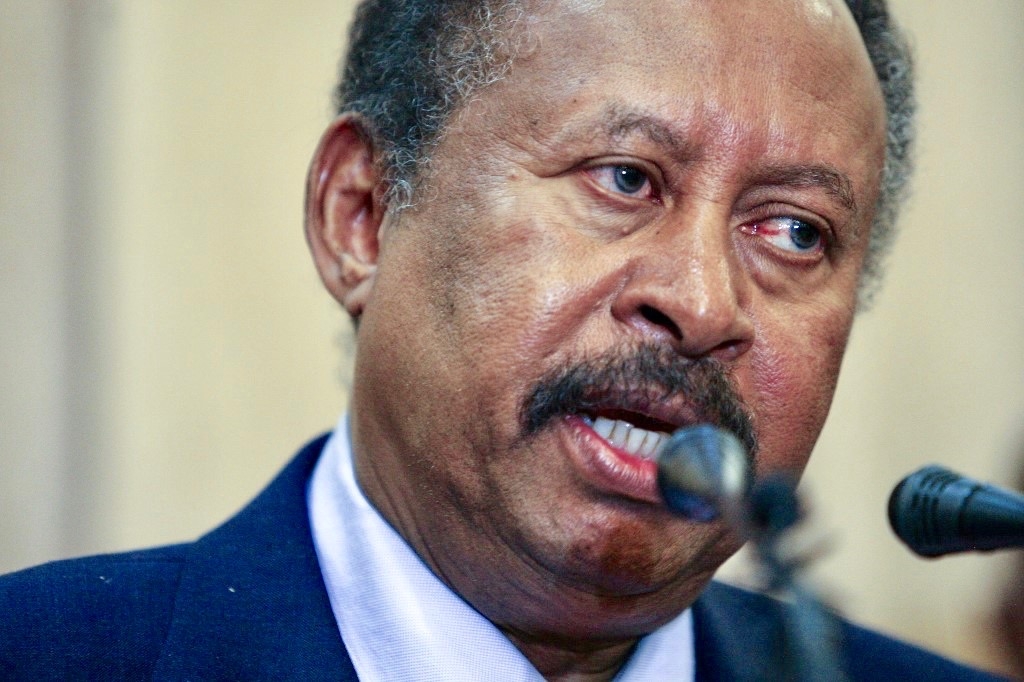
Sudan needs $8bn in foreign aid over the next two years to cover its import bill and help rebuild its ravaged economy after months of political turmoil, its new prime minister told Reuters on Saturday.
Abdalla Hamdok, sworn in three days earlier to head a transitional government after the ousting of veteran leader Omar al-Bashir, said as much as another $2bn of foreign reserves deposits were needed in the next three months to halt a fall in the currency.
The 61-year-old economist, who has worked for the UN Economic Commission for Africa, said he had started talks with the IMF and the World Bank to discuss restructuring Sudan's crippling debt, and had approached friendly nations and funding bodies about the aid.
Mounting public anger over shortages of food, fuel and hard currency triggered mass demonstrations that eventually forced Bashir from power in April.
Stay informed with MEE's newsletters
Sign up to get the latest alerts, insights and analysis, starting with Turkey Unpacked
"We are in communication to achieve this," Hamdok said. "The foreign reserves in the central bank are weak and very low."
"However," he said, "there won't be a forced prescription from the IMF or the World Bank on Sudan."
On the politically tricky topic of government subsidies for bread, fuel, electricity and medicine, Hamdok said any changes would only be made after "deep discussions" with the people.
"The people are the ones who will make the decision on this issue," he said.
He also said he had been talking with the United States to remove Sudan from its list of state sponsors of terrorism - a designation that has left Khartoum isolated from most of the international financial system since 1993.
There was no immediate comment from the US government, the IMF or the World Bank.
While he was outside Sudan and not directly involved in the protest movement that terminated Bashir's rule, Hamdok's appointment appeared to be well received by the population.
"He has the skills we need the most at the moment," Sumaila Ibrahim, a 21-year-old student at Khartoum University, told AFP.
Hamdok is also an alumnus, having completed a degree in agricultural economics in the capital before moving to Manchester in the UK for his masters.
Besides his credentials as an economist, Hamdok has carved an image as a champion of transparency and good governance in the course of his rich career in African organisations.
He sat on the board of the Mo Ibrahim Foundation, which was founded by the eponymous Sudanese-British billionaire to promote good governance and leadership in Africa.
Last year, Hamdok turned down an offer by Bashir to become finance minister as part of a government reshuffle.
Sudan has been in economic turmoil since it lost the bulk of its oil production in 2011 when South Sudan seceded after decades of civil war.
It has devalued the pound several times but has not been able to halt the fall. One dollar currently fetches 65 pounds on the black market versus the official rate of 45.
"We will work to unify the exchange rate, and to manage the exchange rate using a flexible managed exchange rate," Hamdok said, without going into details.
He said Sudan needed to restore trust in the banking system.
Hamdok, who studied agricultural economics, has also worked at the African Development Bank and most recently as a special adviser at the Trade and Development Bank in Ethiopia. He said Sudan needed to tap its agricultural potential.
Sudan is rich in agricultural resources but high taxes, corruption and mismanagement have held back investment in the sector for decades.
"We want to take the Sudanese economy from an economy based on consumption and imports to a productive economy, and stop exporting products such as livestock and agriculture as raw materials," Hamdok said. "Instead, we will aim to process them so as to create added value."
He also said he wants to focus on building peace in a nation that has seen conflicts flare in multiple parts of the country, and endured a civil war that ended in the succession of the South.
"Stopping war, which represents 70 percent of the expenditure in the budget, will create a surplus that can be invested in production and particularly agriculture, livestock, and related industries," he said.
Shortly after Bashir was ousted, the United Arab Emirates and Saudi Arabia pledged $3bn in aid to Sudan, in the form of a $500m deposit in the central bank, which Sudan has already received, as well as fuel, wheat and medicine.
The generals who forced Bashir from power took over and then, after months of wrangling and further violent protests, agreed to set up a transitional body including civilians to pave the way to elections in three years time.
Many hope Hamdok can shepherd Sudan through the transitional period, but some opposition members and analysts worry that the power-sharing deal may fall short of expectations in a country where the military, backed by Islamists, has dominated for decades.
Middle East Eye delivers independent and unrivalled coverage and analysis of the Middle East, North Africa and beyond. To learn more about republishing this content and the associated fees, please fill out this form. More about MEE can be found here.


